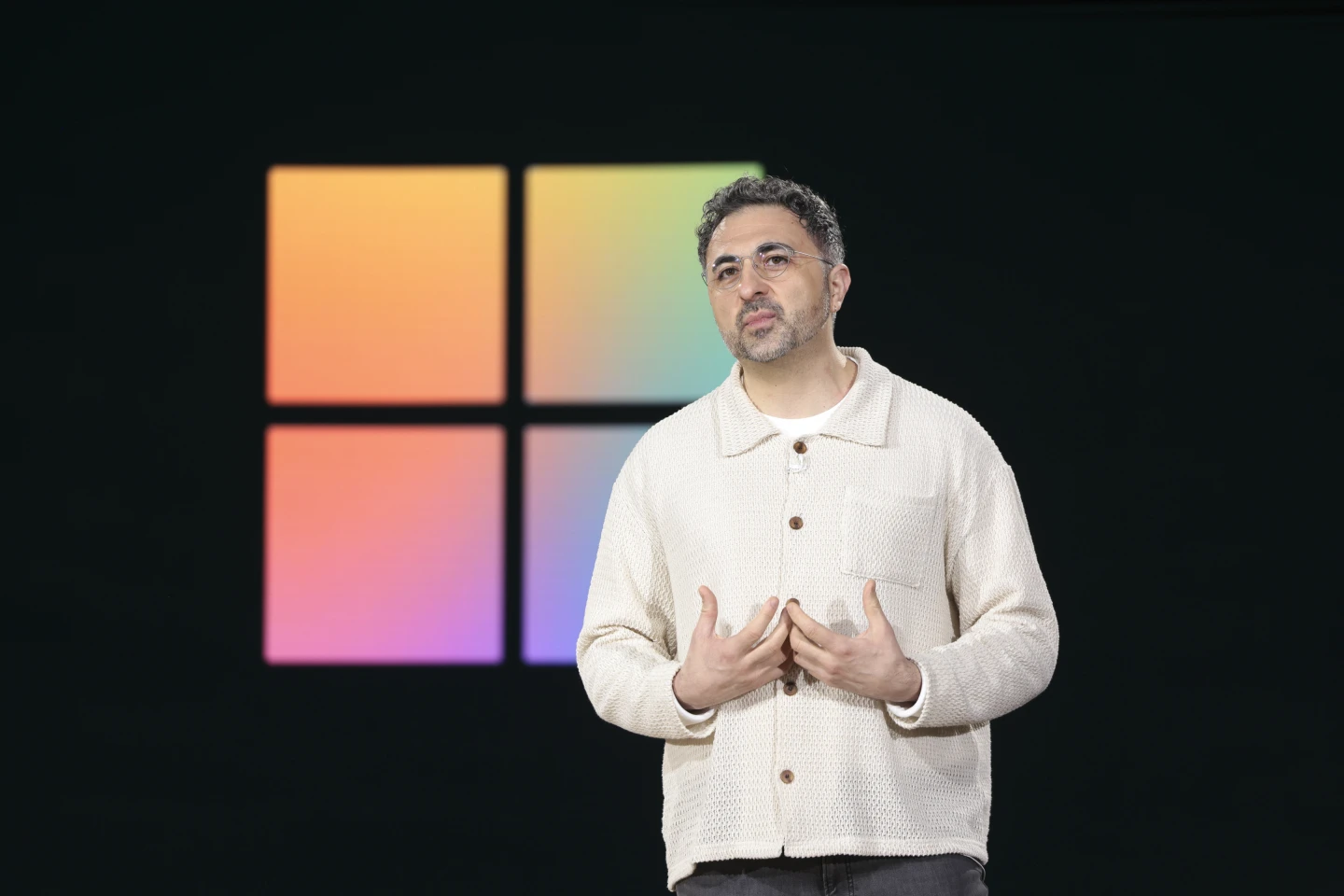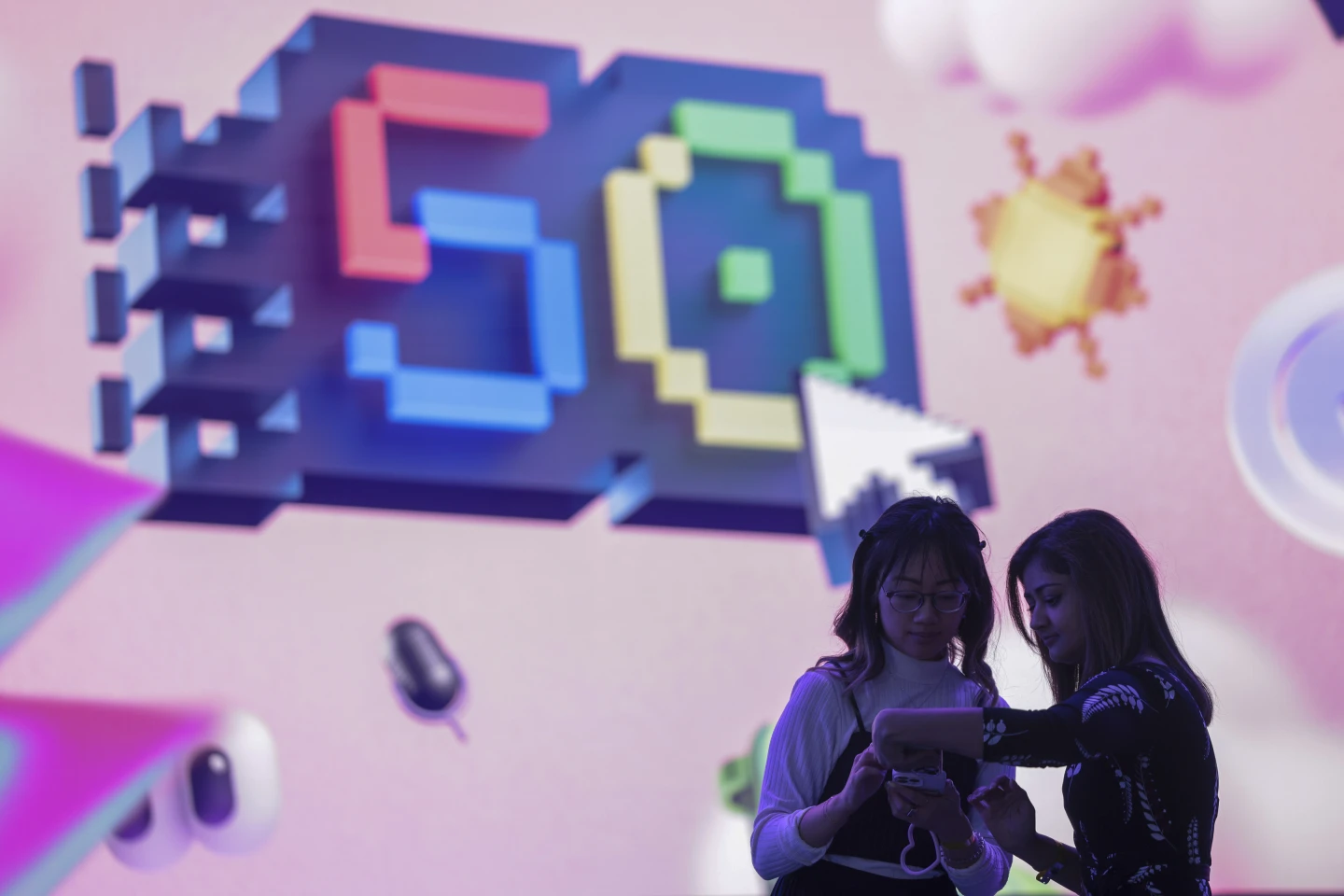AP – Fifty years after the founding of Microsoft, the CEO of its artificial intelligence division has a big task: develop a new product line as integral to daily life as the software giant’s past innovations.
“We’re really trying to land this idea that everybody is going to have their own personalised AI companion,” said Mustafa Suleyman in an interview with The Associated Press. “It will, over time, have its own name, its own style. It will adapt to you. It may also have its own visual appearance and expressions.”
Suleyman laid out that vision on Microsoft’s 50th anniversary Friday. The celebration at Microsoft’s headquarters in Redmond, Washington featured the first public gathering in more than a decade of co-founder and former CEO Bill Gates with his two successors: Steve Ballmer, who led the company from 2000 to 2014, and the current chief executive, Satya Nadella.
Giving the mic to Suleyman, who joined the company and Nadella’s senior leadership team just over a year ago to head a newly formed Microsoft AI division, signals how important getting its AI right is to the company’s future — in the next five years if not the next 50.
The company’s flagship product of this AI era, Copilot, already combines a chatbot with Microsoft’s suite of workaday tools, from Excel spreadsheets and PowerPoint presentations to the Windows operating system that defines how most computers work. But Suleyman is striving for something that sounds a little more like science fiction — a technology that can form a “lasting, meaningful relationship” with its users.
Some of those updates — such as new “visual memory” capabilities that keep track of a user’s digital activity, if they want that — roll out on mobile apps Friday. Other features are still in development, such as an animated avatar — a talking peacock in Suleyman’s demo Friday — that would embody a person’s AI companion.

The race to build the best AI personal assistant that sticks with consumers is a competitive one. In recent weeks, rivals including Google and Meta Platforms have shaken up the teams in charge of AI research or products. ChatGPT maker OpenAI, which is both Microsoft’s most important AI partner and a growing competitor, has also reorganised its leadership. Amazon is also looking to catch up by imbuing its already-ubiquitous digital assistant Alexa with more advanced AI capabilities.
Even as competition ramps up, so does wariness from Wall Street and big business customers about whether these AI products are worth their huge costs in computing power and energy.
Suleyman’s own daily interactions with Copilot demonstrate the shortcomings of generative AI technology that is prone to confidently spouting falsehoods — known as hallucinations — and still struggles to match some of the commonsense reasoning skills that come naturally to humans.
Asked about how he’s using the technology in his daily life, Suleyman scrolled through his phone and candidly revealed his most recent chatbot conversations — including, in preparation for Friday’s event, his request for it to calculate Microsoft’s all-time cumulative revenue over 50 years.
“It didn’t correctly add up all of the revenue,” he said. “That’s a pretty hard problem, although it got it really close.”
He also recounted more playful encounters, such as a long chat about “whether to put minced beef or chunks of beef” in a chili recipe and uploading a photo of his açai bowl so that Copilot could visually analyse its contents.
Microsoft’s own researchers, in collaboration with Carnegie Mellon University, recently published a study that found that generative AI can inhibit critical thinking skills of human workers and lead to overreliance on the technology — a conclusion that Suleyman says he disagrees with.
Making chatbots fun, useful and personable might be key in winning over workers wary of the technology — especially when Gates, Suleyman and other tech leaders from Microsoft and elsewhere have loudly sounded the warning about their coming effects on employment.
“The truth is that the nature of work is going to change,” Suleyman said during a video interview on Microsoft’s Teams platform, a way of communicating he said would have been unimaginable 30 to 50 years ago.
In our home life, too, a personal AI assistant is “going to take care of a tremendous amount of boring, tiring, exhausting administration in the back end. Booking, planning, organising, buying, sourcing, researching, comparing. We’ve never had anything like that before that can automate all of those things. It’s going to be pretty amazing.”



